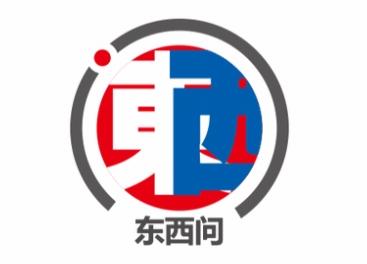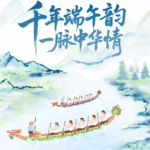
——Exclusive interview with the national-level intangible cultural heritage representative project ‘Quyuan Legend’ Hubei provincial representative inheritor Zheng Chengzhi
Reporter Qiu Xiaoli

Every Dragon Boat Festival, the ancient ‘River Sacrifice’ ceremony is held in Quyuan Guli, Zigui County, Hubei. ‘My brother returns——’ a heartfelt call that spans thousands of years, echoes along the banks of the gorge.
Why has the ‘River Sacrifice’ been passed down to this day and received both domestic and international attention? Currently, how does this ancient custom innovate and break through to resonate with modern society? Recently, Zheng Chengzhi, the national-level intangible cultural heritage representative project ‘Quyuan Legend’ Hubei provincial representative inheritor and a specially-appointed researcher at Wuhan University, was interviewed by the ‘East-West Question’ for an analysis.
The following are excerpts from the interview:
Reporter: What is ‘River Sacrifice’? How did this unique custom originate?
Zheng Chengzhi: The so-called ‘River Sacrifice’ refers to the worship of water deities, a custom that predates the Quyuan period. Figures like Hebo, Xiangjun, and Xiangfuren in ‘Nine Songs’ are all considered river deities. In Zigui and other areas, there is an early history of ‘River Sacrifice,’ which is recorded in the Quyuan writings and artistically presented.
The Quyuan writings systematically document and describe the sacrificial scenes, with the most concentrated works being ‘Nine Songs’ and ‘Summoning Souls.’ Quyuan fully absorbed folk sacrificial music and dance to create ‘Nine Songs,’ systematically describing the worship of solar gods, cloud gods, mountain gods, water gods, and other types of deities, as well as the rituals of deceased soldiers. ‘Summoning Souls’ details the process of the soul-summoning ritual, including the setting up of altars, offering of sacrifices, and recitation of soul-summoning verses. Additionally, works like ‘Litanies to Exorcise Riots’ also depict the ‘River Sacrifice.’
In 278 BC, on the fifth day of the fifth lunar month, Qu Yuan, filled with resentment, embraced a stone and drowned himself in the Miluo River. The people of Chu believed Qu Yuan became a water deity, and thus built shrines to worship him. Thereafter, the worship of the water deity evolved into commemorative activities for Qu Yuan.
Every year, during the Dragon Boat Festival, the people of Duzhou pray to Qu Yuan, with dragon boat races developing from ceremonies originally meant to worship the water deity Qu Yuan.

Journalist: How has the ‘River Ceremony’ tradition evolved and been passed down over the millennia? Compared to other Dragon Boat Festival traditions, what makes the ‘River Ceremony’ unique?
Zheng Chengzhi: As the hometown of Qu Yuan, both the government and the people of Duzhou have a long history of rituals commemorating Qu Yuan.
Jin Wang Jia’s “Records of Finding the Lost” notes: “(Qu Yuan) was persecuted by the king and went to the waters of Qinglu. Admired by the people of Chu, he was called the Water Immortal. His spirit travels in the Milky Way, sometimes descending to Xiangpu. The people of Chu built shrines for him, and at the end of the Han dynasty, this continued. During the Tang Dynasty, Emperor Ai posthumously honored Qu Yuan as Zhaoling Marquis in 904 AD; during the Song Dynasty, he was honored as Qinglie Gong, and later as Zhongjian Marquis; in the Yuan Dynasty, he was further honored as Loyalty and Purity Duke; in the Ming Dynasty, he was acclaimed as the God of Qu Ping from the great state of Chu.
Since modern times, the spirit of Qu Yuan has become a powerful force inspiring unity and resilience among all ethnic groups.
In 2002, due to the construction of the Three Gorges Project, the thousand-year-old return city faced submergence. My father, Mr. Zheng Bangqing, was invited to plan and preside over the Dragon Boat Festival activities commemorating Qu Yuan. He consulted historical records and formed a complete modern ceremony, which has since been firmly established.
The Duzhou Dragon Boat Festival rites include rituals like temple offerings, river ceremonies, racing on the water, and returning (with the dragon boats). Among these, the ‘River Ceremony’ is particularly grand and moving.
Every May 5th on the lunar calendar, the people of Xigui gather by the banks of the Yangtze River to set up sacrificial altars and pay homage to Qu Yuan. During the riverside ceremony honoring Qu Yuan, the dragon boat rowers will place the specially crafted wooden dragon head onto the dragon boat. A respected elder will paint the eyes on the dragon head. After the elder drinks a toast, he will smash the wine bowl on the ground, declaring the official start of the dragon boat race. Amid the sound of firecrackers, the dragon boats slowly enter the water, led by the white dragon as the filial dragon at the forefront, followed by the other dragon boats. The crowd sings “Zhaohun Qu” and shouts loudly, “Brother, echo back—echo—,” beginning their journey down the river to summon back the spirit of Qu Yuan to the homeland.
The song “Zhaohun Qu” has been passed down among the Xigui people for a long time. The lyrics go like this: “Listen, oh great men, let me speak. Can’t reach the sky, oh, above there are ten thousand miles of black clouds; can’t go underground, oh, below there are nine gates and eight extremes; can’t go to the swallow, oh, east there are endless swirling currents; can’t go south, oh, south there are jackals, wolves, and foxes; can’t go west, oh, west there are endless deserts; can’t go north, oh, north there are ice and snow covering the ground. I just wish my great men would quickly return home, no need to worry about food and clothing, the prosperous terrain of Chu… For thousands of years, every Duanwu festival, the melancholic “Zhaohun Qu” has always moved people’s hearts again and again.”

In 2023, during the Duanwu Festival, Xigui held a “River Sacrifice” ceremony. Photo by Zhang Chun, Reporter.
Reporter: Why is this ancient folk custom from Xigui recognized by various places, especially the coasts of the Taiwan Strait?
Zheng Chengzhi: After my father passed away, I have always served as the chief officiant for Xigui’s Duanwu sacrificial ceremonies. Over the past 20 years, I have been invited to places like Beijing’s Yanqing, Chongqing’s Changshou, Taiwan’s Changhua, and Hunan’s Yueyang, to preside over Duanwu festival sacrificial ceremonies. Everywhere I go, the “River Sacrifice” always evokes strong responses.
In 2013, the then-mayor of Taiwan’s Changhua City, Qiu Jianfu, and his delegation visited Xigui. The Taiwanese compatriots showed a special interest in the Qu Yuan memorial ceremony and brought the ceremony process and sacrificial texts back to Taiwan.
On May 28, 2017, I was invited to Changhua, Taiwan, to participate in the celebrations of the Quyuan Culture Festival. The local people invited the statue of Quyuan from Quyuan Temple, and over a dozen strong men carried the sedan chair with the statue, stepping forward with a seven-star stride, accompanied by the rhythms of the Dianyin San Taizi. The crowd along the way was very enthusiastic and lively. I deeply felt that while the cultural expressions of the Dragon Boat Festival differ on both sides of the Taiwan Strait, the respect and reverence for Quyuan are consistent, as is the shared patriotism and relentless pursuit of excellence. The idea of both sides being of the ‘same root, same origin, same ancestors, same religion’ was vividly symbolized at that moment.
Despite the different cultural impressions and historical backgrounds of the Dragon Boat Festival in various places, the respect for cultural roots and the courage to express them remains the core essence of cultural inheritance. Zigui is the hometown of Quyuan, where Quyuan culture has been almost continuously inherited for over two thousand years. The ‘Riverside Sacrifice’ is rich in ritual symbolism and the mystery of life, and its cultural imagery and value pursuit have gained widespread recognition among the people of various regions. This recognition extends far beyond superficial forms, rooted in a deep spiritual resonance.

Reporter: Each Dragon Boat Festival, the Zigui ‘Riverside Sacrifice’ ceremony is reported by media at home and abroad. What is the reason for its continued attention from both domestic and international audiences? Currently, how can this ancient tradition innovate and connect with contemporary society in deeper ways?
Zheng Chengzhi: In the contemporary setting, under the backdrop of real scenes like the Three Gorges and the Grand Canyon Reservoir, the ‘Riverside Sacrifice’ presents a strong regional characteristic and the unique charm of blending the ancient with the modern. Its relatively high international recognition and cultural attractiveness are why the ‘Riverside Sacrifice’ ceremony is widely followed.
“Ji River Sacrifice” customs have been passed down through the centuries, continuously perpetuated by the local community as a way to uphold their ancestral spiritual roots. Attention from both domestic and international spheres on the “Ji River Sacrifice” stems from a shared high regard for values such as “Loyalty and Patriotism,” “Integrity and Dedication,” and “Endless Pursuit.”
The “Ji River Sacrifice,” alongside the Dragon Boat Festival and other traditional customs, has gained wide recognition and acceptance globally. In recent years, entrepreneurs and leaders worldwide have understood and studied the procedures of the “Ji River Sacrifice” through various channels, building bridges of cultural and sports exchanges.
Mr. Chen Baijing from Malaysia once made a special trip to understand and learn about the ‘Ji River Sacrifice’ system, inviting experts to Malaysia for exchanges, hoping to change the current situation of emphasizing competitions over rituals. Through his efforts, the Malaysian dragon boat team participated in the dragon boat race held in Quyuan in 2023, enhancing sports and cultural exchanges between the two regions. Austrian Chinese Lee Qing organized youth sports exchange activities in Central and Eastern Europe after learning about the ‘Ji River Sacrifice’ to promote the international transmission of dragon boat culture.
Amid historical and modern, Eastern and Western cultural interactions, challenges and opportunities coexist. We should actively promote the preservation, inheritance, and development of this ancient custom to ensure its longevity and renewal. For instance, leveraging overseas dragon boat races, we should confidently ‘invite in’ and ‘go out,’ focusing on external expression methods to showcase the cultural charm of the ‘Ji River Sacrifice,’ making it an effective carrier for enhancing cultural exchange cooperation. Utilizing cultural and tourism resources along with modern science and technology, we should innovate on the content and forms of cultural transmission, creating a new ‘Ji River Sacrifice’ culture to engage deeply with contemporary society in more straightforward, lively, and diverse ways. (End)
Interviewee Introduction:

Zheng Chengzhi. Photo by the interviewee
Zheng Chengzhi, a representative of the national-level intangible cultural heritage project ‘Quyuan Legends’, is a provincial-level inheritor in Hubei, a specially appointed researcher and off-campus instructor at Wuhan University, a school-level teaching guide at China University of Geosciences (Wuhan), and an excellent theoretician in Hubei province.
Published works include ‘The Legends of Returning to the Wind’, ‘The Folk Customs of the Three Gorges Returning to the Wind’, and ‘The Return of the Soul — Sixty-two Questions on Quyuan’, among many others.

